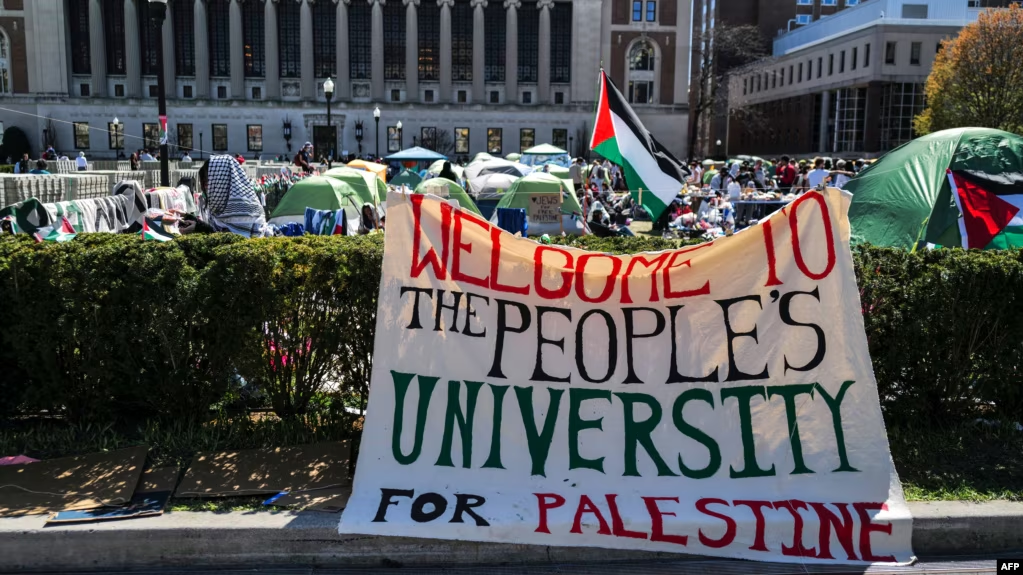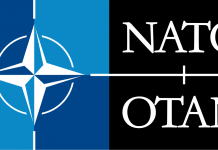Like so much of what Israel’s ultranationalist government does – from its authoritarian overhaul effort to rejecting regional peace frameworks – its move this week to shut down Al Jazeera in the country will sound good to many people at first but is upon reflection imbecilic.
At issue is a law passed by the Knesset this week that allows any foreign media deemed harmful to “national security” to be barred from functioning in Israel and to have its assets impounded, staffers expelled, online and offline feeds blocked, and so on. The standard authoritarian toolkit.
If Prime Minister Benjamin Netanyahu’s government follows through on its plans, the first (and perhaps only) implementation will be against Al Jazeera, the Qatar-based news station that has upset the government with its undeniably unsympathetic coverage of the Gaza War. Those who will cheer this are not journalistic purists concerned about bias, for they would favor it the other way around; it’s nationalism.
What’s so bad about Al Jazeera? The usual things. They rush to report news that makes Israel look bad, and do not rush to correct things when they get it wrong. The language used on-air betrays that they really do think there is a genocide going on in Gaza (there isn’t) and that they consider the settlements in the West Bank “illegal” (they’re weird and wrong, but not illegal). They rarely air criticism of Hamas.
It is not my cup of tea. I think Hamas is the criminal aggressor in the current war, which the jihadi group started on Oct., 7 with an unprovoked invasion and a brutal massacre the likes of which have not been experienced by a Western country since World War II – and I agree Al Jazeera causes Israel some harm by promoting a narrative to the contrary (the Arabic station more than the softer English-language version).
But they are not quite the two-headed monster some might think. Only two months ago, Israel was accused by the Committee to Protect Journalists of killing more journalists in 2023 (mostly in Gaza) than any country has ever done; I defended Israel against that very charge on Al Jazeera (so yes, full disclosure: I have appeared on this channel, as on others). I was invited with the clear understanding that I do not share the station’s perspective, and I was allowed to speak live. The interviewer was somewhat combative, but not unprofessionally so, and I got my points across, including the broadening definition of who is a journalist these days, the overall dangers of war reporting, the particular density and difficulty of Gaza, and the fact that in my experience the IDF does not, in fact, target journalists (though rogue actions can occur, and of course, more can be done to protect them).
Is Al Jazeera balanced enough to be considered a proper journalistic organization? I don’t know, but one thing is clear: it is more so than Israel’s right-wing Channel 14, where you will not hear opposition voices, and more than US right-wing talk radio.
If Israel goes ahead with its plan, it might consider the cost side of the equation.
The first is reputational. Democracies are not supposed to shut down foreign media (or NGOs). That is the type of thing police states mess around with; about a decade ago Egypt shut down Al Jazeera because it correctly deemed it supportive of the Muslim Brotherhood which had just been overthrown. There is no free press in North Korea, Belarus, or Eritrea.
If Israel took such a step it would be badly undermining its standing as a democracy precisely at the moment when that standing is under blistering attack; already, the White House has expressed concern, citing the freedom of the press. The move (indeed the very existence of the new law) would cause Israel’s ranking to tumble in the myriad lists of transparency, freedom, respect for journalists, and so on; just weeks ago the respected Swedish think tank V-Dem denied Israel the top category of “liberal democracy” because of the very attempt, now on pause, to eviscerate Israel’s judiciary. Such reputational damage could beget further punishment from the global credit ratings agencies, world markets, and foreign investors.
Given all the attention this will attract, many around the world will start to notice that the law in fact allows the government to shut down any foreign media on “national security” grounds (as long as a judge approves – and remember, the government’s reforms aim to appoint puppet judges). It is easy for Israelis to stomach the shuttering of Al Jazeera. How will they feel if their country uses this law to shut down CNN or the Associated Press?
The law’s mere existence is a threat because bad-faith players can twist the national security argument any which way to suit their purpose; so it has been, and so it will be. National security canards are a very slippery slope that serves dictatorships. Dictatorships do not generally prosper, even if some dictators do. Israelis like their prosperity, and it is linked to their democracy.
So, what’s the upside? Let’s take a look:
· Most of the negative coverage of the war on Al Jazeera comes from the studio in Doha – from discussions with experts, with video from the news agencies and from Al Jazeera itself serving as the backdrop to the discussion and too often tendentious on-screen text overlays. This will continue, obviously.
Al Jazeera will continue to operate in the Palestinian areas, which includes Gaza, in theory. The original reporting and videos from there will continue – but now the material will not be routed through the office in Jerusalem, whose producers and editors may not be huge fans of the occupation of the West Bank, but are at least exposed to the Israeli perspective on things.
· There will be no more hope of reporting from Israel, which does occur at present, and does bring across the Israeli view, even if deemphasized.
· It’s true that Al Jazeera will be removed from the Israeli cable and satellite platforms that carry it, but it will continue to spread all its supposed venom to the Arab world and the entire planet; and even if the website is blocked by geolocation anyone in Israel who wants to reach it will be probably able to do so via workarounds like a VPN (which encrypt a user’s internet connection and reroutes it through a server in another country).
· Al Jazeera will presumably still be able to interview people in Israel by video conference, because … technology. The government could try to forbid this too by law, which would probably be struck down by the courts (since they have not yet been Putinized) and which would cause more damage.
Communication Minister Shlomo Karhi accuses the station of pro-Hamas incitement and exposing Israeli troops to ambushes, without offering proof. Neither one would necessarily be affected by the law, as we have seen. So, long story short, shutting down Al Jazeera in Israel will not prevent the organization from doing exactly what it does today.
If this law (which is currently defined as a temporary measure) becomes permanent, Israel will be essentially granting itself unchecked authority to suppress voices that it deems unfavorable or critical. This not only stifles freedom of expression but also undermines the fundamental principles of democracy, which expose Israel to massive reputational damage on the international stage, strengthening the narrative that it is moving towards authoritarianism.
Ironically, targeting the media in the name of national security may actually undermine security interests in the long run. A free and independent media serves as a vital check on government power and can uncover abuses of authority, corruption, and other threats to national security. By silencing the media, first foreign and then local, government weakens their social cohesion, which harms national security. In the case of Israel, which faces genuine and extreme threats, maintaining some cohesion is critical.
Democracy is tested precisely in tolerating voices you do not want to hear. I don’t expect the current Israeli government or its supporters to care about that. But perhaps they will care about looking like idiots for a boneheaded move that is all pain and no gain.
Dan Perry was the top AP editor in Europe and Africa, in the Middle East, and in the Caribbean. He was chairman of the Foreign Press Association in Jerusalem. He writes frequently on world affairs, technology, and media, is the author of two books on the Middle East. Follow him at danperry.substack.com.

















